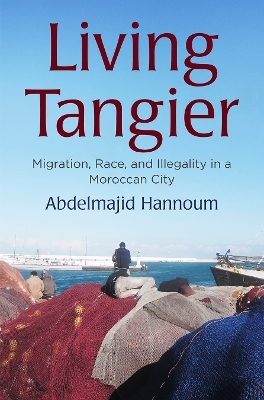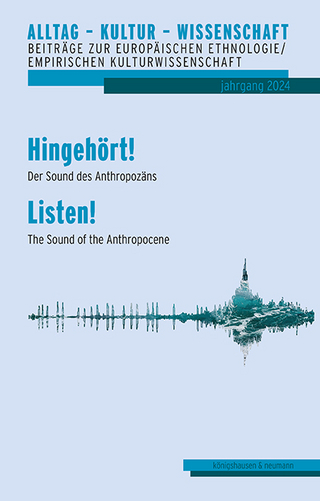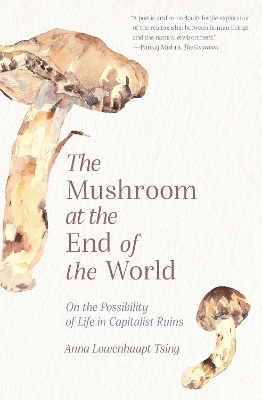
Living Tangier
Migration, Race, and Illegality in a Moroccan City
Seiten
2025
University of Pennsylvania Press (Verlag)
978-1-5128-2792-7 (ISBN)
University of Pennsylvania Press (Verlag)
978-1-5128-2792-7 (ISBN)
- Noch nicht erschienen (ca. Mai 2025)
- Versandkostenfrei innerhalb Deutschlands
- Auch auf Rechnung
- Verfügbarkeit in der Filiale vor Ort prüfen
- Artikel merken
How Moroccan society, especially in the city of Tangier, has been affected by the flows of migrants from both West Africa and Europe
Since the early 1990s, new migratory patterns have been emerging in the southern Mediterranean. Here, a large number of West Africans and young Moroccans, including minors, make daily attempts to cross to Europe. The Moroccan city of Tangier, because of its proximity to Spain, is one of the main gateways for this migratory movement. It has also become a magnet for middle- and working-class Europeans seeking a more comfortable life.
Based on extensive fieldwork, Living Tangier examines the dynamics of transnational migration in a major city of the Global South and studies African "illegal" migration to Europe and European "legal" migration to Morocco, looking at the itineraries of Europeans, West Africans, and Moroccan children and youth, their strategies for crossing, their motivations, their dreams, their hopes, and their everyday experiences. In the process, Abdelmajid Hannoum examines how Moroccan society has been affected by the flows of migrants from both West Africa and Europe, focusing on race relations and analyzing issues related to citizenship and social inequality. Living Tangier considers what makes the city one of the most attractive for migrants preparing to cross to Europe and illustrates not only how migrants live in the city but also how they live the city—how they experience it, encounter its people, and engage its culture, walk its streets, and participate in its events.
Reflecting on his own experiences and drawing on the work of Hannah Arendt, Edward Said, Tayeb Saleh, Amin Maalouf, and Dany Laferrière, Hannoum provokes new questions in order to reconfigure migration as a postcolonial phenomenon and interrogate how Moroccan society responds to new cultural processes.
Since the early 1990s, new migratory patterns have been emerging in the southern Mediterranean. Here, a large number of West Africans and young Moroccans, including minors, make daily attempts to cross to Europe. The Moroccan city of Tangier, because of its proximity to Spain, is one of the main gateways for this migratory movement. It has also become a magnet for middle- and working-class Europeans seeking a more comfortable life.
Based on extensive fieldwork, Living Tangier examines the dynamics of transnational migration in a major city of the Global South and studies African "illegal" migration to Europe and European "legal" migration to Morocco, looking at the itineraries of Europeans, West Africans, and Moroccan children and youth, their strategies for crossing, their motivations, their dreams, their hopes, and their everyday experiences. In the process, Abdelmajid Hannoum examines how Moroccan society has been affected by the flows of migrants from both West Africa and Europe, focusing on race relations and analyzing issues related to citizenship and social inequality. Living Tangier considers what makes the city one of the most attractive for migrants preparing to cross to Europe and illustrates not only how migrants live in the city but also how they live the city—how they experience it, encounter its people, and engage its culture, walk its streets, and participate in its events.
Reflecting on his own experiences and drawing on the work of Hannah Arendt, Edward Said, Tayeb Saleh, Amin Maalouf, and Dany Laferrière, Hannoum provokes new questions in order to reconfigure migration as a postcolonial phenomenon and interrogate how Moroccan society responds to new cultural processes.
Abdelmajid Hannoum is Professor of Anthropology at the University of Kansas. He is the editor of Practicing Sufism: Sufi Politics and Performance in Africa, and author of Violent Modernity: France in Algeria and Colonial Histories, Postcolonial Memories: The Legend of the Kahina, a North African Heroine.
Introduction
Chapter 1. Revolution
Chapter 2. Migration, Space, and Children
Chapter 3. Burning Matters
Chapter 4. Transit "Illegality"
Chapter 5. Europeans in the City
Epilogue: Notes on the Migrant Condition
Notes
Bibliography
Index
Acknowledgments
| Erscheint lt. Verlag | 13.5.2025 |
|---|---|
| Reihe/Serie | Contemporary Ethnography |
| Zusatzinfo | 14 b/w illus. |
| Verlagsort | Pennsylvania |
| Sprache | englisch |
| Maße | 152 x 229 mm |
| Themenwelt | Sozialwissenschaften ► Ethnologie |
| Sozialwissenschaften ► Politik / Verwaltung | |
| Sozialwissenschaften ► Soziologie | |
| ISBN-10 | 1-5128-2792-4 / 1512827924 |
| ISBN-13 | 978-1-5128-2792-7 / 9781512827927 |
| Zustand | Neuware |
| Haben Sie eine Frage zum Produkt? |
Mehr entdecken
aus dem Bereich
aus dem Bereich
Wert, Tausch und menschliches Handeln
Buch | Softcover (2023)
diaphanes (Verlag)
28,00 €
Buch | Softcover (2024)
Königshausen u. Neumann (Verlag)
28,00 €
On the Possibility of Life in Capitalist Ruins
Buch | Softcover (2021)
Princeton University Press (Verlag)
19,90 €


